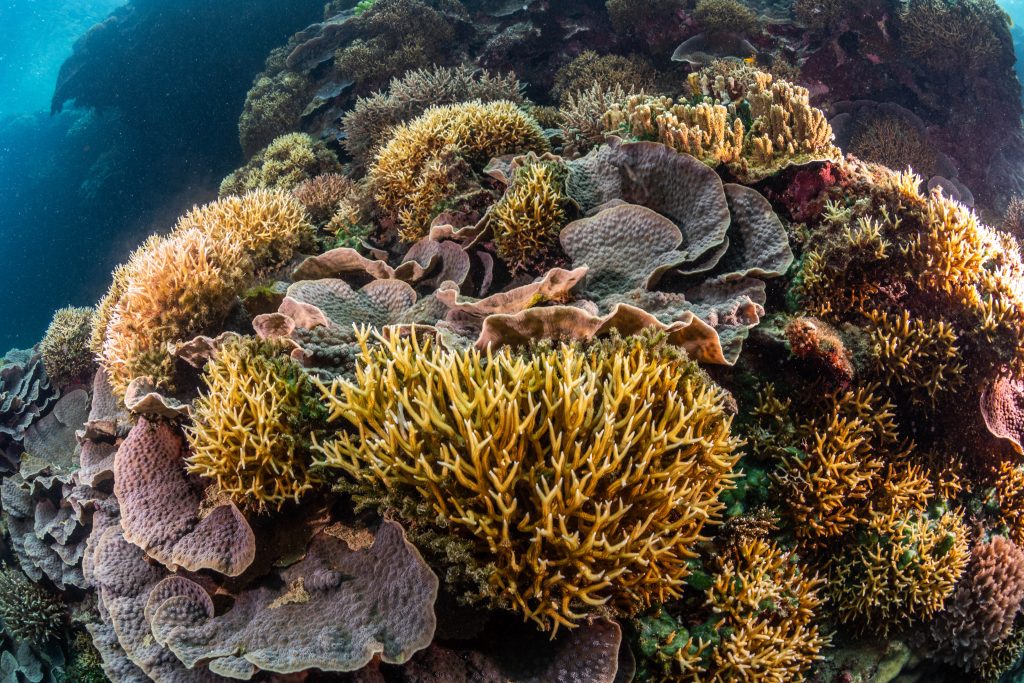Co-management Approaches
Co-management is an approach to managing marine resources that involves the sharing of responsibility and authority between governments and local communities and may also include non-governmental organizations (NGOs) and research institutions.
Locally managed marine areas (LMMAs) and marine conservation agreements (MCAs) are two approaches to marine management that involve aspects of co-management such as the involvement of communities and/or local governments in decision-making and implementation.

About 400 villages in Fiji have established locally managed marine areas with support from the Fiji Locally Managed Marine Areas Network. Photo © Tom Vierus/Ocean Image Bank
LMMAs
A locally managed marine area (LMMA) is an area of nearshore waters and its associated coastal and marine resources that is managed at the local level by communities, land-owning groups, partner organizations, and/or collaborative governments who reside or are based in the immediate area.
A locally managed area can vary widely in purpose and design, but two aspects remain consistent among them:
- A well-defined or designated area
- Involvement of communities and/or local governments in decision-making and implementation
A LMMA differs from a conventional MPA in that locally managed areas are characterized by local ownership, use and/or control, and in some areas follow the traditional tenure and management practices of the region. By contrast, the term MPA normally refers to an area formally designated via a top-down governmental approach, with management implemented or overseen by a centralized agency.
Some examples of existing LMMAs include the Locally-Managed Marine Area Network and the Pacific Islands Managed & Protected Area Community (PIMPAC).
